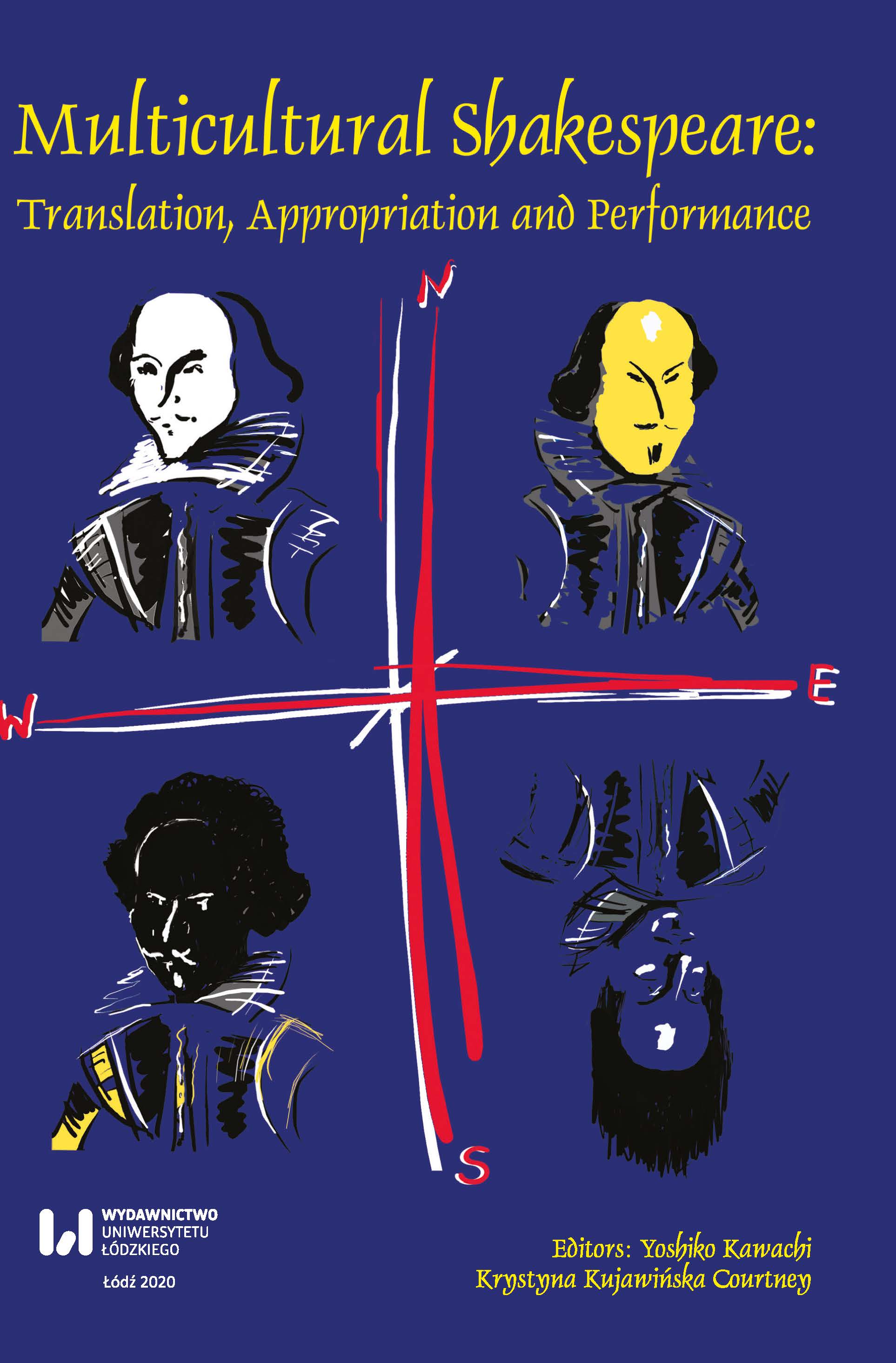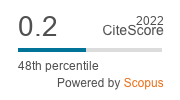A Cognitive Approach to Shakespeare Plays in Immersive Theatre: With a Special Focus on Punchdrunk’s "Sleep No More" in New York (2011-) and Shanghai (2016-)
DOI:
https://doi.org/10.18778/2083-8530.21.02Keywords:
Cognitive science, 4E cognition, immersive theatre, „Sleep No More”Abstract
Although cognitive science is an interdisciplinary field, its central questions are ‘what is humanity?’ and ‘what is emotion?’ Since the field of theatre and performing arts is deeply concerned with humans and emotions, we expect that it will contribute to the understanding of these concepts. Immersive theatre is an experimental performance form that emphasizes site, space and design while immersing spectators in a play. The number of immersive theatre companies or productions has been growing worldwide. This paper discusses Punchdrunk’s Sleep No More, directed by Felix Barrett and performed in London (2003), New York (2011-) and Shanghai (2016-). While elucidating the cognitive impact of immersive Shakespeare performances on spectators, this paper aims to uncover new artistic and cultural value in Shakespeare plays performed in an experimental form in order to advance their contemporary relevance.
Downloads
References
Alston, Adam. Beyond Immersive Theatre. Palgrave, 2016.
Google Scholar
DOI: https://doi.org/10.1057/978-1-137-48044-6
Barret, Felix, and Maxine Doyle. “An Interview with Felix Barrett and Maxine Doyle.” Punchdrunk’s Sleep No More Program, pp. 20-29.
Google Scholar
Biggin, Rose. Immersive Theatre and Audience Experience: Space, Game and Story in the Work of Punchdrunk. London, UK, Routledge, 2017.
Google Scholar
DOI: https://doi.org/10.1007/978-3-319-62039-8
Blair, Rhonda. “8. 4E Cognition for Directing: Thornton Wilder’s Our Town and Caryl Churchill’s Light Shining in Buchinghamshire.” The Routledge Companion to Theatre, Performance and Cognitive Science, edited by Rick Kemp and Bruce McConachie, London, UK, Routledge, 2019, pp.91-99.
Google Scholar
DOI: https://doi.org/10.4324/9781315169927-10
Bloom, Gina. “Videogame Shakespeare: Enskilling Audiences through Theater-Making Games.” Shakespeare Studies, English Department, University of California Davis, vol. 43, 2015, pp. 114-127.
Google Scholar
Bulman, James C., editor. The Oxford Handbook of Shakespeare and Performance. Oxford, UK: Oxford University Press, 2017.
Google Scholar
DOI: https://doi.org/10.1093/oxfordhb/9780199687169.001.0001
Cook, Amy. “47. 4E Cognition and the Humanities.” The Oxford Handbook of 4E Cognition, edited by Albert Newman, Leon De Bruin, and Shaun Gallagher, Oxford, UK, Oxford University Press, 2018, pp. 875-90.
Google Scholar
DOI: https://doi.org/10.1093/oxfordhb/9780198735410.013.47
Drees, Danielle. “The Sleeping Spectator: A Sleep Cultures Critique of Punchdrunk’s Sleep No More.” Performance Research: A Journal of the Performing Arts, vol. 21, no. 1, 2016, pp. 101-105.
Google Scholar
DOI: https://doi.org/10.1080/13528165.2016.1138779
Drinkthehalo. “sleep-no-more-shanghai-concluding-thoughts.” http://drinkthehalo.tumblr.com/post/155070437523/sleep-no-more-shanghai-concluding-thoughts/
Google Scholar
Eckert, Stephen M. “What is Immersive Theater?” https://contemporaryperformance.com/2017/12/09/immersive-theater/
Google Scholar
Gordon, Colette. “Pedestrian Shakespeare and Punchdrunk’s Immersive Theatre.” Cahiers Élisabéthains, vol. 82, 2012, pp. 43-50.
Google Scholar
DOI: https://doi.org/10.7227/CE.82.1.7
Hamana, Emi. “Translingual Performance of King Lear: Lear Dreaming as a Case Study.” Litteraria Pragensia: Studies in Literature and Culture, vol. 26, no. 52, 2016, pp. 90-105.
Google Scholar
Hutto, Daniel D., and Erik Myin. “5. Going Radical.” The Oxford Handbook of 4E Cognition, edited by Albert Newman, Leon De Bruin, and Shaun Gallagher, Oxford, UK, Oxford University Press, 2018, pp. 95-115.
Google Scholar
DOI: https://doi.org/10.1093/oxfordhb/9780198735410.013.5
Judge, Alysia. “Interview: ‘Playable Shows Are the Future’: What Punchdrunk Theatre Learned from Games.” The Guardian. 8 Feb. 2019. https://www.theguardian.com/games/2019/feb/08/playable-shows-are-the-future-what-punchdrunk-theatre-learned-from-video-games
Google Scholar
Kemp, Rick, and Bruce McConachie. The Routledge Companion to Theatre, Performance and Cognitive Science. London, UK, Routledge, 2018.
Google Scholar
DOI: https://doi.org/10.4324/9781315169927
Lack, Hannah. “How a British Theatre Company Found a Tribe of Superfans in China.” AnOther. https://www.anothermag.com/ Accessed 14 December 2018.
Google Scholar
Machon, Josephine. Immersive Theatres: Intimacy and Immediacy in Contemporary Performance. London, UK, Palgrave Macmillan, 2013.
Google Scholar
DOI: https://doi.org/10.1007/978-1-137-01985-1
Machon, Josephine, editor. The Punchdrunk Encyclopaedia. London, UK, Routledge, 2018.
Google Scholar
DOI: https://doi.org/10.4324/9781315150352
Markič, Olga. “Extended Cognition: Feedback Loops and Coupled Systems.” Inter-disciplinary Description of Complex Systems, vol. 15, no. 4, 2017, pp. 270-280.
Google Scholar
DOI: https://doi.org/10.7906/indecs.15.4.5
Newman, Albert, Leon De Bruin, and Shaun Gallagher, editors. The Oxford Handbook of 4E Cognition. Oxford, UK, Oxford University Press, 2018.
Google Scholar
O’Hara, Meghan. “Experience Economics: Immersion, Disposability, and Punchdrunk Theatre.” Contemporary Theatre Review, vol. 27, no. 4, 2017, pp. 481-96.
Google Scholar
DOI: https://doi.org/10.1080/10486801.2017.1365289
Papaioannou, Spyros. “Immersion, ‘Smooth’ Spaces and Critical Voyeurism in the Work of Punchdrunk.” Studies in Theatre and Performance, vol. 34, no. 2, 2014, pp. 160-74.
Google Scholar
DOI: https://doi.org/10.1080/14682761.2014.899746
Prince, Kathryn. “15. Intimate Epic Macbeths in Contemporary Performance.” The Oxford Handbook of Shakespeare and Performance, edited by James C. Bulman, Oxford, UK, Oxford University Press, 2017, pp. 250-63.
Google Scholar
DOI: https://doi.org/10.1093/oxfordhb/9780199687169.013.29
Punchdrunk. Sleep No More. New York production. Program.
Google Scholar
Purcell, Stephen. “17. ‘It’s All a Bit of a Risk’: Reformulating ‘Liveness’ in Twenty-First-Century Performance of Shakespeare.” The Oxford Handbook of Shakespeare and Performance, edited by James C. Bulman, Oxford, UK, Oxford University Press, 2017, pp. 284-301.
Google Scholar
Qian, Jin. “The Sleep No More Superfan, Explained: As the Immersive Play Hits 500 Shows, We Talk to Its Most Loyal and Biggest Fanatics.” 20 Aug. 2018. https://www.smartshanghai.com/articles/arts/the-sleep-no-more-superfan-explained
Google Scholar
Ritter, Julia M. “Fandom and Punchdrunk’s Sleep No More: Audience Ethnography of Immersive Dance.” TDR/The Drama Review, vol. 61, no. 4, 2017, pp. 59-77.
Google Scholar
DOI: https://doi.org/10.1162/DRAM_a_00692
Torpey, Peter, Ben Bloomberg, Elena Jessop, and Akito van Troyer. “Remote Theatrical Immersion: Extending Sleep No More.” http://opera.media.mit.edu/projects/sleep_no_more/
Google Scholar
Downloads
Published
How to Cite
Issue
Section
License

This work is licensed under a Creative Commons Attribution-NonCommercial-NoDerivatives 4.0 International License.












